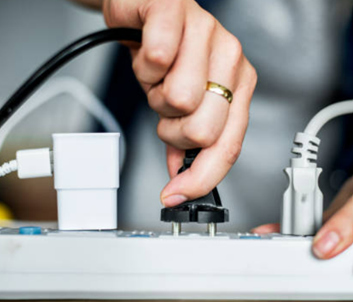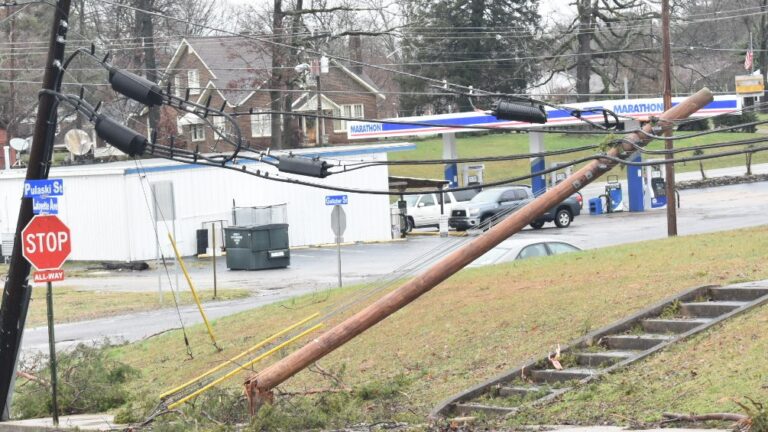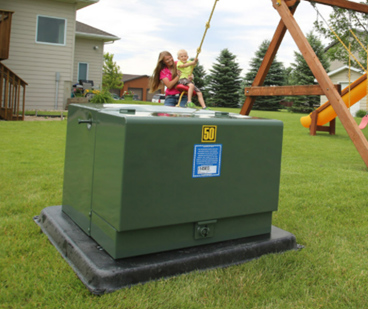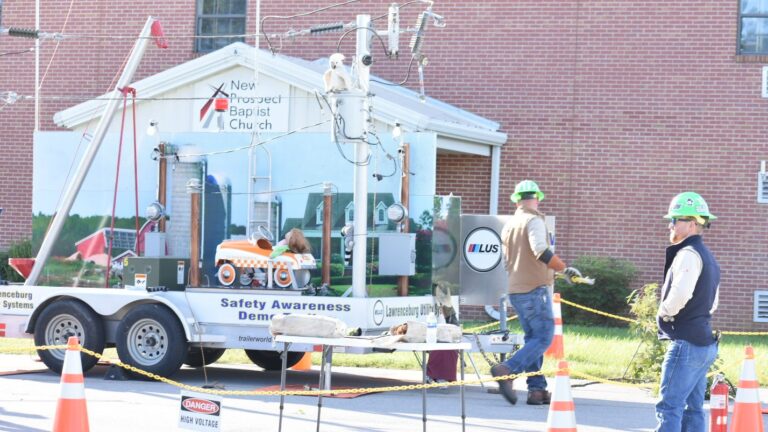Electricity is one of the most commonly used forms of energy used in our daily lives, yet often times we take for granted, just how dangerous it can be. For example, on average one person is electrocuted in their home every 36 hours.
The voltage of the electricity and the available electrical current in regular businesses and homes has enough power to cause death by electrocution. Even changing a light bulb without unplugging the lamp can be hazardous because coming in contact with the “hot”, “energized” or “live” part of the socket could kill a person.
While being the leading cause of death among electrical accidents each year, plugs and electrical cord accidents are among the easiest to avoid. You should immediately replace any cord if there is visible burning or melting, and should never use an electric appliance that has a damaged electric cord. Roughly 3,300 house fires originate in extension cords each year, killing 50 people and injuring 270 more.
Fixing the wiring on your own is not always a solution as it can cause accidents. This is the second leading cause of house fires. Common problems with household wiring systems can lead to overloaded circuits, damaged wires and loose connections on outlets, switches and other electrical devices. You should always use a licensed electrician to perform any wiring work in or around your home.
Another common cause of electrical accidents is the misuse of lamps and light fixtures. Using a 100-watt bulb in a 60-watt fixture will melt the fixture wires, causing electrical shock and fire. Similar to extension cords, don’t use any appliance or fixture when you notice sparks, buzzes, smoke, a damaged cord, or a burning smell. Switch them off and unplug immediately to prevent fires.
In case of an electrical fire, call 911 immediately and disconnect the breaker that provides electrical service to the appliance on fire, or disconnect the main breaker. If you can safely unplug an appliance that is on fire then do so. Never try to extinguish an electrical fire with water. Use baking soda or an extinguisher rated for electrical fires. It is a good idea to make sure all adults and older children in the home know where the breaker panel for the home is and how to disconnect the main breaker. Breaker panels should be labeled as detailed as possible.

Power lines can be brought down by any number of causes, including equipment failures, lightning storms, high winds, downed trees, or by damage such as vehicle accidents. You should NEVER touch, move, or go near any kind of downed or low-hanging line, even if it looks harmless.
If you see a downed or low-hanging wire call LUS immediately at (931) 762-7161. Stay away from downed or low wires and use extreme caution as there is no way to know if a wire is an energized electric line or something else like a telephone or cable television line.
You don’t have to touch a downed power line to be seriously injured. You can be shocked just by going too close to a downed line because the earth in the area around the fallen line becomes energized. Always warn others to STAY AWAY from downed lines.
Should a fallen line come into contact with a vehicle, the vehicle itself may become energized. In many cases the safest thing to do is stay in the vehicle until help arrives, as the rubber tires on the vehicle will protect it. Keep others away from the vehicle. Any person attempting to touch or leave the vehicle could be electrocuted. If possible, stay in the vehicle until LUS has made the line safe.
If it is unsafe to remain in the vehicle because of fire or other danger, DO NOT step away from the vehicle. Jump as far away as possible, keeping both feet together. NEVER touch the vehicle and the ground at the same time, as people are conductors, and the electricity will flow through the body in order to reach the ground. Hop or shuffle your feet in very small steps to move to safety. Remember, be safe!


In neighborhoods with underground electric service, pad-mounted transformers at ground level are used to step down high-voltage electricity for home consumption. These important pieces of equipment are most often safely housed in green metal boxes, but precautions still need to be taken.
Here are some quick tips to ensure the safety of customers and LUS line workers:
LUS would be glad to perform a live line demonstration for students or for other groups wanting a better understanding of high voltage electricity. Our Safety Team will bring the LUS safety trailer to you at no cost. This is a service we provide to our community to make you more aware of the dangers of electricity.

For additional information on how to safely use electricity in a number of different scenarios, visit https://safeelectricity.org/public-education/tips/.
Lawrenceburg Utility Systems
25 Public Square Suite D
Lawrenceburg, TN 38464
931.762.7161
Lawrenceburg Utility Systems
PO Box 649
Lawrenceburg, TN 38464